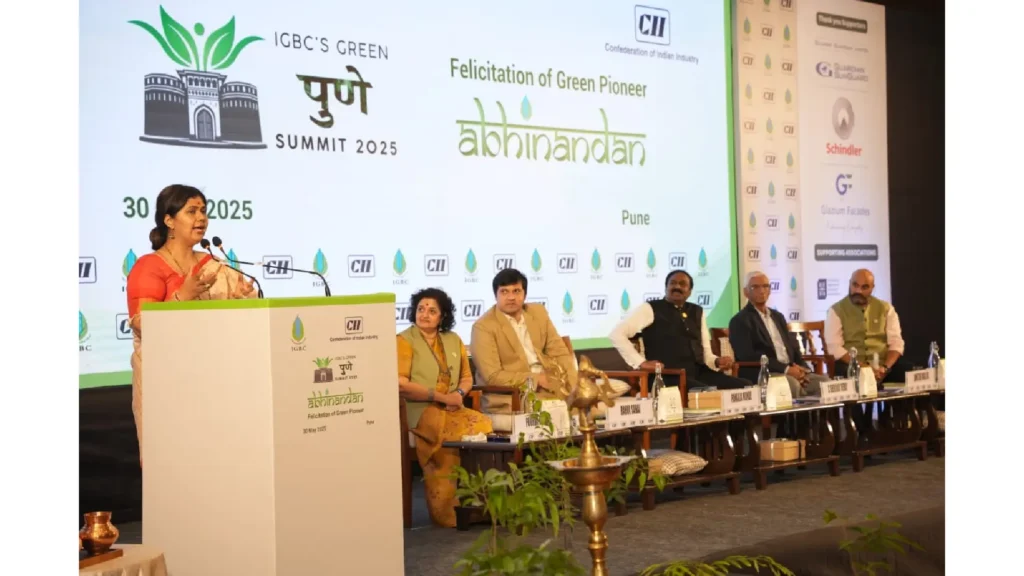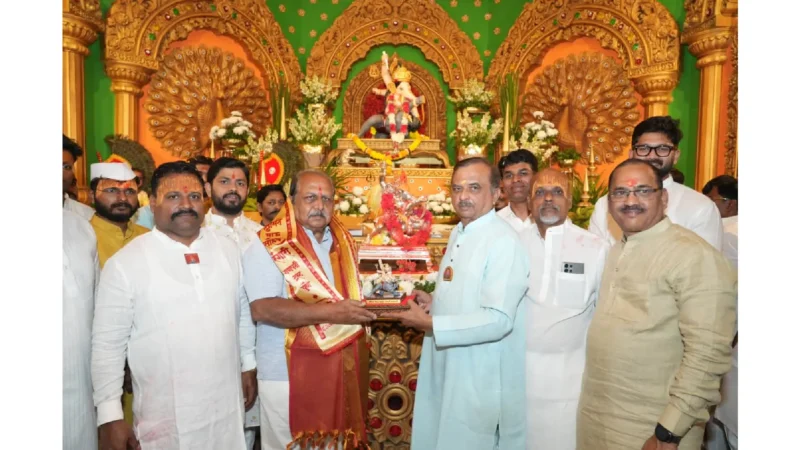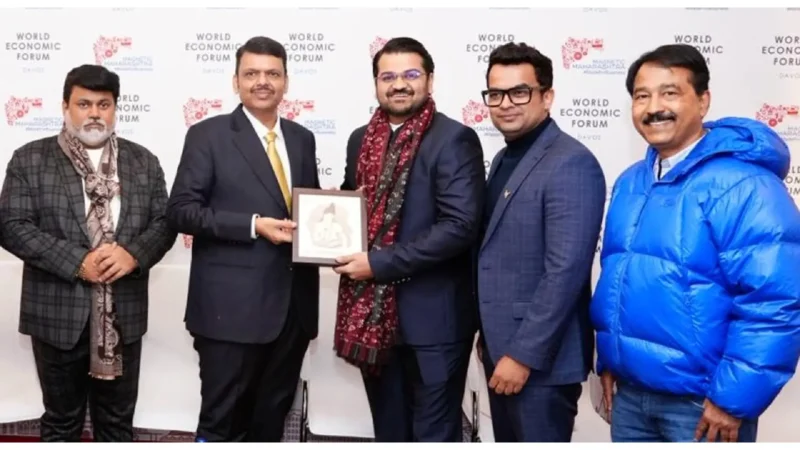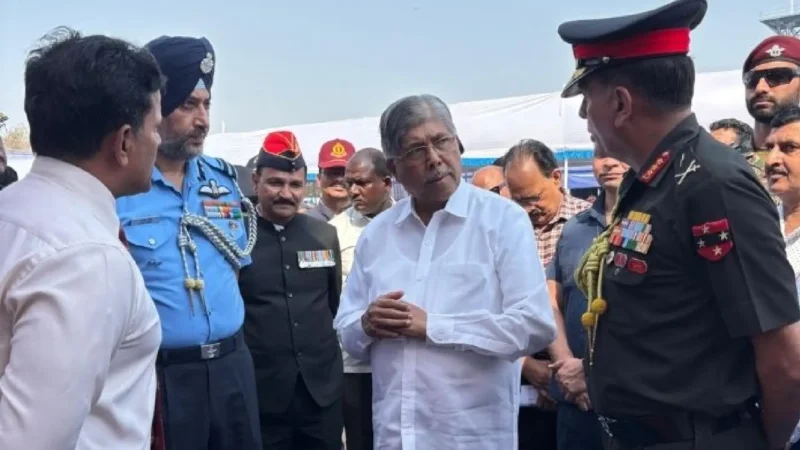Pune : Munde urges developers and architects to embrace Green and Net Zero building concepts

Pune, 30 May 2025 : Real estate developers and architects should embrace green and net zero building concepts while planning new projects since they play a critical role in mitigating environmental degradation, Pankaja Munde, minister for Environment and Climate Change, Government of Maharashtra said during Green Pune Summit & Abhinandan 2025, organized by CII Indian Green Building Council (IGBC) Pune Chapter. She highlighted the need to integrate sustainable, environment-friendly concepts and technologies into their projects that will reduce, reuse and recycle, while highlighting the example of prefabricated technology, on how it significantly reduces on-site pollution by minimizing dust, debris, and construction waste.
The minister also mentioned that there are new rules being framed by the government in this direction that enforces environment-friendly measures in construction activities while specifically mentioning a fresh set of rules are coming up in the sewage treatment norms. She also welcomed recommendation and suggestions in policymaking from IGBC stakeholders.
Munde urged that this landmark summit should serve as a convergence point for public and private stakeholders to share insights and strategies to make Pune a green model city for India. The inaugural summit was attended by Padma Shri Mr. Amitav Mallik, Founding Member, Pune International Centre; Mr. Rahul Sahai, CEO, Kirloskar Oil Engines Limited; Mr. C Shekhar Reddy, National Vice Chair, CII – IGBC; Dr. Poorva Keskar, Chairperson, IGBC Pune Chapter; and Mr. Hrishikesh Manjrekar, Co-Chair, IGBC Pune Chapter.
IGBC has made substantial environmental and economic contributions in Pune with over 1200 projects currently adopting IGBC ratings. With 89 projects certified and over 1.1 billion square feet of green built-up area added in 2023–24, Pune is making significant strides in sustainable construction. Notably, Platinum-rated projects alone account for 110 million square feet, while Net Zero buildings contribute an additional 10 million square feet, showcasing a strong push toward ultra-sustainable development. Annually, these 89 projects collectively save 6.6 billion kWh of energy, reduce 5.4 billion kg of CO₂, and conserve 598 million kilolitres of water. These projects were felicitated at the event. The Platinum buildings’ CO₂ savings are equivalent to removing over 2,000 cars from the roads each year or planting approximately 500,000 trees. Additionally, Net Zero buildings divert 95% of construction and operational waste, translating to 500–1,000 tons of waste managed sustainably each year.
Green-certified buildings in Pune also contribute to urban comfort and human well-being. They help mitigate the urban heat island effect, lowering local temperatures by up to 2.5°C using reflective roofs, shaded parking, and campus greenery. These buildings also foster healthier indoor environments, maintaining PM levels below 50 µg/m³ and improving occupant productivity by 10–12%, while reducing absenteeism by up to 20%.
Delivering the keynote address, Mr. C Shekhar Reddy, National Vice Chair, CII – IGBC emphasized the critical role of IGBC in empowering cities to integrate green building norms. He said, “The green building movement is expanding rapidly, and Pune stands out as a front-runner. Pune has set a benchmark across various sectors and ranks first across the country in the industrial & logistics category and ranks second in the residential category. With Maharashtra’s government encouraging green building practices and having several incentives and banks offering green financing options, Pune’s approach is comprehensive. The time is now to accelerate this transition across the country, using IGBC’s inclusive frameworks and proven impact models lead by cities such as Pune.”
Mr. Hrishikesh Manjrekar, Co-Chair, IGBC Pune Chapter shared how Pune is emerging as a leading city in sustainable urban development, with a growing number of IGBC-certified green buildings, government-backed incentives, and investments in eco-friendly infrastructure. Initiatives like improved road networks and inclusive livelihood programs underscore its commitment to climate-smart growth.
From an economic perspective, these green buildings command 4–7% higher lease/rental rates, achieve faster occupancy, and are favored by investors. The IGBC initiatives align closely with Pune’s Climate Action Plan, specifically supporting its goals for energy efficiency, waste management, and achieving a carbon-positive status by 2050.
The Indian Green Building Council (IGBC) is actively promoting sustainable development in Pune through initiatives like the Green Cities Rating system, which encourages eco-friendly urban planning, and the Pune Chapter’s workshops and events that educate local developers and architects on green building practices. Notable IGBC-certified projects in Pune include ISC Tower Pune, Amar Tech Park, and Rajashree Estate, all of which have achieved Platinum ratings for their energy-efficient and sustainable designs.
A fireside chat titled “The Green Dialogue: Breaking Barriers & Building Solutions” featured Hon. Pankaja Munde, Minister of Environment & Climate Change, Animal Husbandry, Maharashtra State in conversation with Dr. Poorva Keskar, Chair, IGBC Pune Chapter. The session provided a compelling dialogue on Maharashtra’s environment policy, the challenges of green transition in urban India, and the importance of aligning local action with global climate goals.
Speaking at the fireside chat, Dr. Poorva Keskar, Chairperson, IGBC Pune Chapter stated “Pune is at the forefront of India’s green building movement, blending rapid urban growth with a conscious shift toward sustainability. With the beginning of metro infrastructure and a strong culture of innovation, the city is setting benchmarks for climate-resilient development. What gives us even more hope is the passion we see among young minds, our IGBC Student Chapters in Pune, are driving awareness campaigns and events that are nurturing tomorrow’s green leaders. Their energy, coupled with industry commitment, is powering Pune’s journey towards becoming a model green city.”
In the technical session, experts highlighted the best practices and emerging technologies in sustainable construction. Mr. Jayesh Hariyani, Chair, IGBC Ahmedabad Chapter, and CMD of INI Group, spoke on holistic and context-specific design solutions. This was followed by technical presentations by leading companies including Gujarat Guardian and Schindler India, highlighting innovation in energy-efficient glass and vertical mobility systems.
The summit concluded with a thought-provoking panel discussion on “Climate Action Plans for Cities with a Focus on the Real Estate Sector.” Moderated by Ms. Pritika Manjrekar, Principal Architect,
MoCo Design Studio the panel featured leaders such as Mr. Anand Sanghavi, Director – Operations, Panchshil Realty; Mr. Anshul Abbasi, Lead – Policy & Planning, NIUA; and Mr. Nikhil Mijar, Architect & Urban Planner, Pune Municipal Corporation.
The discussion highlighted the need for climate-responsive architecture, financing for green buildings, and policy reforms to incentivize sustainable urban growth.
Multiple IGBC-certified projects were felicitated during the event, recognizing Pune’s contribution to India’s green building footprint. These recognitions were led by Hon. Pankaja Munde, Minister of Environment & Climate Change, Animal Husbandry, Maharashtra State; Shri Jitendra Dudi (IAS), District Collector, Pune, and Mr. C Shekhar Reddy, National Vice Chair, CII – IGBC
-END-
About CII-Indian Green Building Council –
The Indian Green Building Council (IGBC) was established by the Confederation of Indian Industry (CII) in 2001 to actively promote the Green Building concept in India. The Council, with 30 Chapters across India, is represented by all stakeholders of the construction industry comprising corporate, government, and nodal agencies, architects, product manufacturers, institutions, and more. The Council also works with governments, the World Green Building Council, and bilateral and multilateral agencies in promoting green building concepts in India.
With a registered Green Building footprint of 13.74 billion sq. ft, and with over 15,930+ projects adopting IGBC’s 32 rating systems, the Green Building movement in India has been advancing at a rapid pace and transforming India, into one of the global leaders in green built environment. IGBC is a market leader with about 90% of the India’s green building projects adopting IGBC Green and Net Zero Rating Systems.





